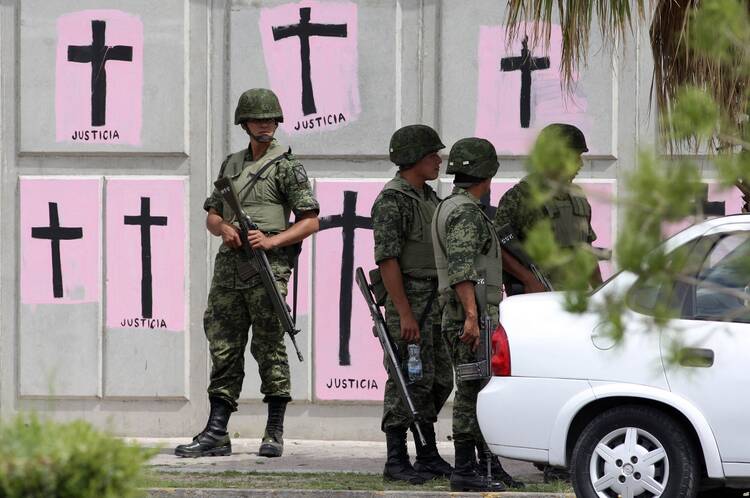Calling an overemphasis on military responses “counterproductive,” the bishops who chair the domestic and international peace and justice committees of the U.S. Conference of Catholic Bishops urged Secretary of State John Kerry to examine the funds and priorities of the coordinated efforts of the U.S. and Mexican governments against narcotics trafficking, also known as the Mérida Initiative. That bilateral effort, begun in 2007, joined the governments of the United States and Mexico in a partnership against narcotics trafficking and related criminal activities along the border, including arms trafficking and money laundering. Over $1.5 billion in U.S. foreign assistance has been spent on military and humanitarian programs in support of the initiative.
“While there is a role for security assistance, we also urge that an increased proportion of budgetary expenditures attributable to U.S. international aid be allocated to support the fostering of human rights, a just and humane civil society and broad-based economic development,” wrote Archbishop Thomas G. Wenski of Miami and Bishop Richard E. Pates of Des Moines, Iowa, in a January 6 letter to Secretary Kerry. The bishops added that the proposed reallocation of U.S. aid from military to soft power options was also “the conviction of the church in the region.”
Archbishop Wenski and Bishop Pates chair the U.S.C.C.B. Committees on Domestic Justice and Human Development and International Justice and Peace, respectively.
The bishops specifically called for a deeper U.S. role in supporting efforts to strengthen the Mexican judicial system, to expand economic and educational opportunities in Mexico “to create viable alternatives to criminal careers,” agricultural development and to provide more programs that target youth unemployment in Mexico and treatment facilities for those already addicted to drugs.
“We are convinced,” the bishops wrote, “that these programs will result in a more humane and effective investment of our limited national resources. Such activities may be linked to efforts to increase the manufacturing and tourist industries that already exist in these areas, supported by a truly ‘Twenty-First Century’ border.”
The bishops conclude, “A focus on human rights and fair economic development will lead to more successful outcomes than would continued deployment of increasingly expensive and complex weapons systems, military hardware and expert personnel.”








